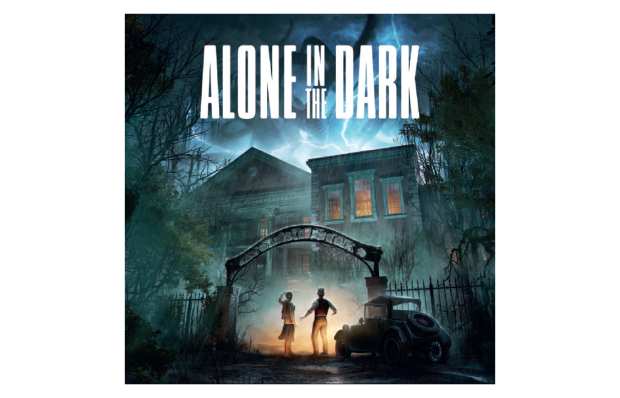Did the US secretly write a power ballad in order to bring down the Soviet Union? That’s the question behind Wind of Change, a serial documentary that has topped the podcast charts. It’s the work of an investigative journalist called Patrick Radden Keefe who claims to have once received a tip-off, from an intelligence contact, that the song ‘Wind of Change’ — recorded by the hair metallers Scorpions — was actually a CIA campaign to encourage anti-Soviet uprisings. Now he wants to prove it.
This week’s episode, the fourth of eight, takes Keefe to a collectors’ convention in Ohio in pursuit of an internet user called ‘Lance Sputnik’ who creates customised versions of GI Joe action figures. ‘I think he knows something about this,’ ponders Keefe in the introduction. That’ll be a solid lead then, you think, given that our host is an award-winning muckraker. But it turns out that the suspicion is based purely on the fact that Sputnik once made Scorpions action figures from reharvested GI Joes and wrote a story that they’d been secret Cold War operatives.
‘It’s completely fictional,’ says Sputnik when Keefe tracks him down, probably surprised to find himself justifying his profoundly unfashionable hobby to an investigative reporter. But Keefe can’t let it go. The coincidence (that a middle-aged man might enjoy 1970s patriotic cartoons and camp-as-Christmas rock bands) is apparently too much. ‘I’ve got to ask: were you in the CIA?’ asks Keefe. ‘God, no,’ laughs the potential operative, giving a decent impression of someone who’s never been asked that question before.
These mystery podcasts (a less grisly evolution of the true-crime serials before them) are everywhere, but they’re awfully drawn out. Producers demand that what would otherwise be a solid one-off documentary is instead stretched out into several 45-minute episodes to be drip-fed each week. Which means a lot of padding. For every new revelation, we usually get a longer digression into a side plot. This week, that’s a 30-minute mini-doc about a KGB-controlled rock club in Soviet Moscow. Interesting, but not hugely relevant to the central question.
Listeners are wising up to the tricks, though. Scrolling through user reviews of a similar podcast, I found one that said: ‘These mystery podcasts should have to say at the beginning whether they actually know the answer to the question or not.’ As entertaining as it is, I’ve got a hunch this one doesn’t.
Still, it’ll be much closer to the mark than The Missionary, another eight-part serial that began last month. The trailer hints at a full-scale thriller, drip-feeding explosive allegations against a Christian missionary, Renee Bach, whose aid work may have led to the unnecessary deaths of some 105 Ugandan children. At one point, the podcast (which begins with a tell-tale legal caveat) hints that we might be on the trail of a faith-crazed child-kidnapper. Goodness.
But The Missionary has a problem: four weeks prior to its launch, a New Yorker investigation found that allegations against Bach (which were widely reported elsewhere) couldn’t be substantiated and that her methods — and results — were completely in line with established practice. Even worse, it suggested that she may have been framed by a jaded former missionary acquaintance turned far-left activist. The activist in question, Kelsey Nielsen, runs an organisation called No White Saviors, seemingly intent on hampering any humanitarian missions that don’t share her postmodernist identity politics (in one of the article’s most eyebrow-raising moments, she offers a cultural-relativist defence for child pornography).
Keen not to prejudge too much, I listened with an ear for any new evidence. Much of the scrutiny is centred on Bach’s schmaltzy — and sometimes exaggerated — fundraising campaigns, which often sidelined her African colleagues in the process of building up her own humanitarian brand: apparently an act of profound white arrogance. But those campaigns, aimed at honky-central mega-churches back in the US, raised millions of dollars for life-saving treatments for Ugandans. Can’t the white saviour shtick (grating though it is) be excused in light of the greater good?
What really piqued my curiosity was when Bach’s nemesis herself popped up on the podcast (it turned out that she’d put the hosts on to the story in the first place). Perhaps there’s a twist coming and the final three episodes will explore the intertwining stories of the two women. After all, they share a remarkable talent for getting others to buy into their truth: Bach by guilt-tripping evangelicals into emptying their pockets; Nielsen by using fashionable jargon to hoodwink gullible journalists.
I’m hoping that one day this psychodrama will get the airing it deserves. Until then The Missionary feels a bit like the radio equivalent of Rosenkrantz and Guildenstern Are Dead: a slightly laborious sideshow while the real drama occurs elsewhere.
Got something to add? Join the discussion and comment below.
Get 10 issues for just $10
Subscribe to The Spectator Australia today for the next 10 magazine issues, plus full online access, for just $10.
You might disagree with half of it, but you’ll enjoy reading all of it. Try your first month for free, then just $2 a week for the remainder of your first year.














Comments
Don't miss out
Join the conversation with other Spectator Australia readers. Subscribe to leave a comment.
SUBSCRIBEAlready a subscriber? Log in